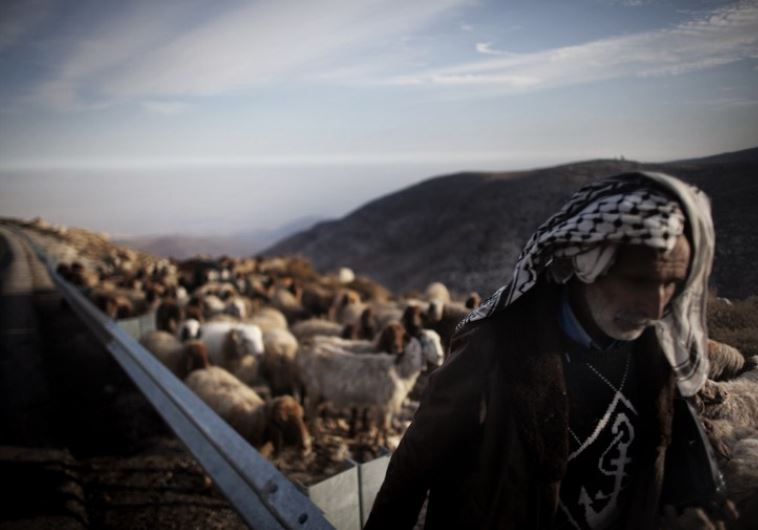Palestinian farmer skeptical of Israeli probe into axed olive trees
According to Hajj, 215 trees belonging to four different families had been totally or partially axed.
 A Palestinian farmer tends to his herd in the Jordan Valley(photo credit: AFP PHOTO)Updated:
A Palestinian farmer tends to his herd in the Jordan Valley(photo credit: AFP PHOTO)Updated: